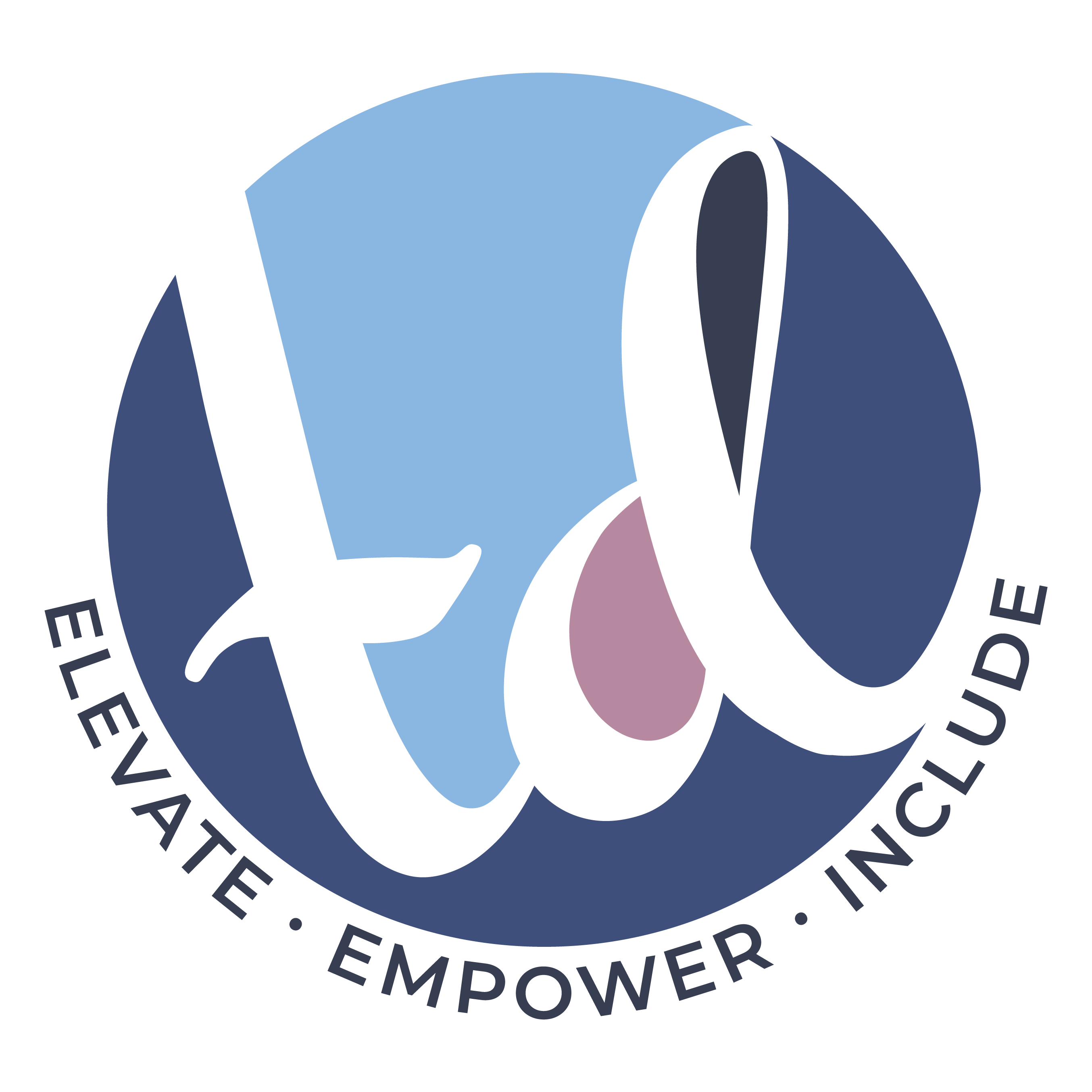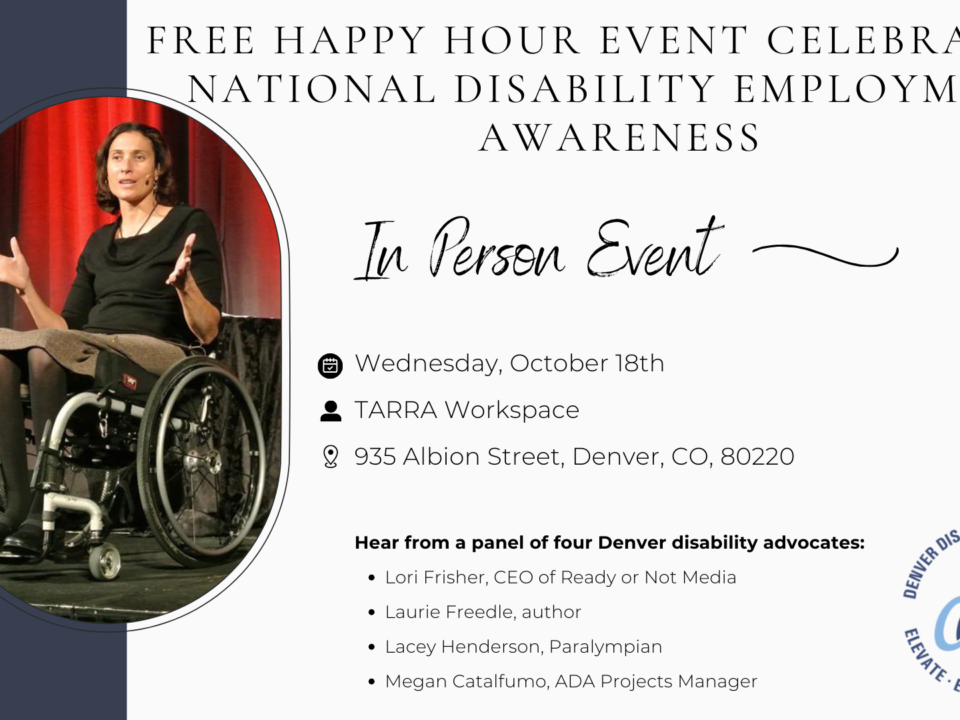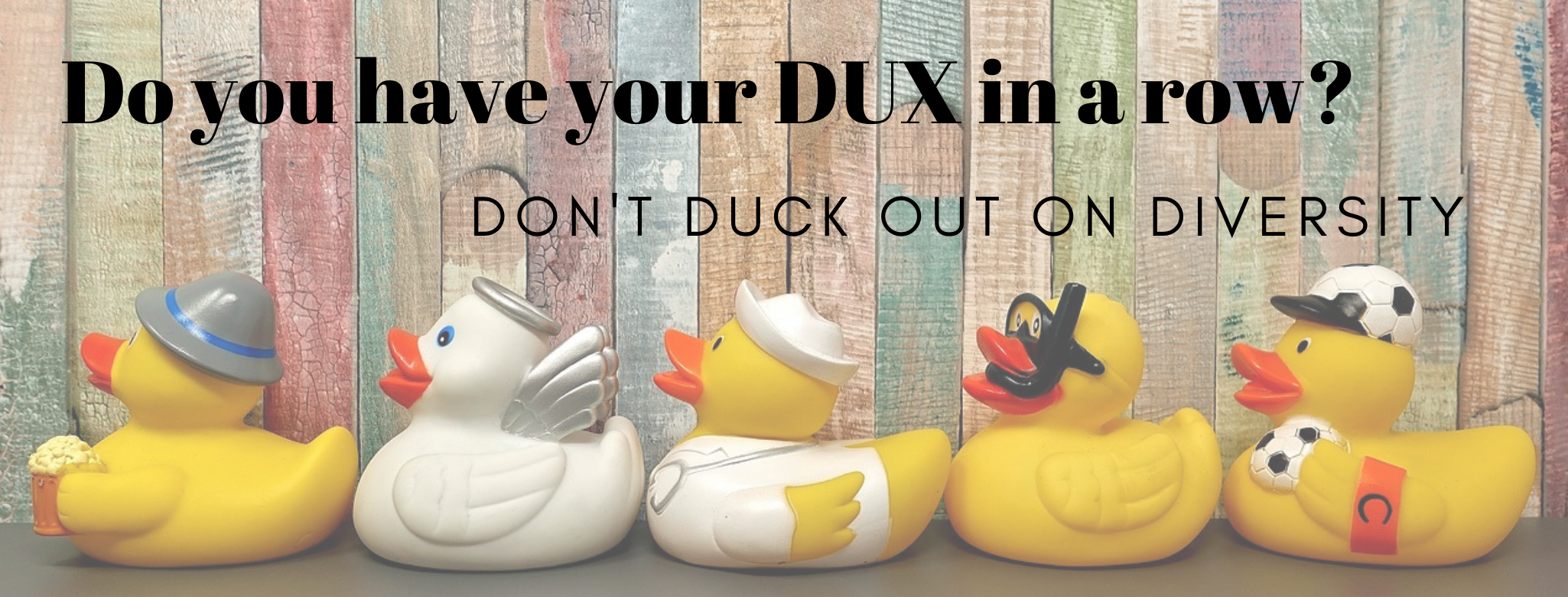Over the past year, I have been in a slump. And the best way I can describe how I’m feeling is simply tired. Not the, I-need-to-take-a-nap-and-when-I-wake-up-I’ll-be-more-energetic kind of tired, but exhausted at my core. For the longest time, I struggled to figure it out and get to the root of the problem. Is it because I’m pushing that stage referred to as perimenopause? Or that I am a competitive athlete training to make the 2020 Paralympics? Is it trying to balance the stress of being an entrepreneur and keeping up in today’s fast-paced world?
I wasn’t sure until about three months ago, when I had a string of frustrating events which—as I was at the end of my rope—threatened to unhinge me. But it was then I made the connection. Each of the adverse events were related to having a disability or the fact that I live life from a wheelchair. And suddenly, I began to piece it together. But it all fell into place when I happened across the actual words in front of my eyes in black and white. The lightbulb went on in my head.
Every day we are exposed to new words and terms to describe both the individuals and communities with which we coexist, as our awareness of the diversity in people’s experiences and identities continues to grow and refine and we work to create an environment of understanding and hopefully, acceptance.
As an individual with a disability, I am often pulled to these types of articles, news stories and the individuals who help me discover these terms, so I can put the words to what I or others may experience in our day-to-day lives. However, I recently had a special a-ha moment when I came across the phrase ‘Emotional Tax’. The definition was related to the concept within a business context, but it’s easily transferrable to life outside of work. Emotional Tax: the state of being on guard—consciously preparing to deal with potential bias or discrimination (http://bit.ly/2ORLNb5) [The article was actually about racial bias, but as I have found when most people think of diversity, disability is often not even part of the conversation, but more on that later]. I finally connected that the exhaustion I was experiencing was the build-up of being 19-years post-paralyzing-injury, spending each day, wasting my finite energy stores on dealing with the daily bias, discrimination and quite simply invisibility of those of us who live with disabilities. Worse yet, when that disability requires the use of a wheelchair.
When I read further about Emotional Tax, I immediately identified my symptoms and connected. I contemplated the many times a day I am faced with having to work harder to be seen as an equal or keep up in a society that does not see disability as a unique trait, but as a burden. Something to deal with. And it wasn’t even the big challenges I encounter that made an indelible mark. It was the daily, seemingly mundane experiences that have been sucking my energy.
Having a disability is like being in a bike race, but every time you get to the front of the pack, you immediately get swallowed up by the riders behind and once again find yourself at the back. And, no matter how hard you pedal you have no chance of making the breakaway. It’s as if this giant hand comes out of the sky, picks you up and continually drops you to the back of the field, where you sit disheartened. Dead last.
- Want to get in a store in the older part of town? “Oh no, we can’t possibly put in a ramp up the one step that leads into our business, to make it wheelchair accessible for you.”
- Want to rent a car so you can go on a last-minute business trip? “No, it’ll take a minimum of three business days to have hand controls installed in a rental car” (the local adaptive car shop in my area takes about five hours). And if you’re calling on a Wednesday, late in the morning, you can forget about having a rental car waiting for you until Monday, at the soonest. (Meanwhile, we have the technology for self-driving cars, and able-bodied individuals can rent cars at a moment’s notice without ever even having made a reservation).
- You desperately need to “go” and you get into a public bathroom with ten empty stalls and the one accessible stall has an able-bodied person in it, doing their morning business and is parked there for 15 minutes.
- You want to park your car at the store but the accessible spots are filled with people who just need to run in really quick to the store.
- You go to a local gym and see 25 empty stationary bikes, treadmills, etc. and not a single stationary arm bike in the place.
- A group of friends go on an outing, but they don’t call you up because you’d be too much trouble, or the adventure isn’t accessible.
- You’re complimented for being an inspiration as you mindlessly grab a bag of spinach off the refrigerated shelf in the produce department of the grocery store.
Yes, I have experienced all of this. And some as recently as this morning. And, that’s just the tip of the ice berg. I haven’t even gotten to the BIG stuff yet (being seen as capable in the workplace, dateable in the realm of relationships or viable as a parent). But when you add it all up, the unconscious messages sound like this:
- We don’t care about your business or spending power—Plus, people with disabilities don’t leave their homes anyway, do they? (2) People with disabilities don’t operate within the professional business community, let alone travel independently—Why would we make your customer experience a priority? People with disabilities can’t travel. (3) You don’t matter—And besides, I thought all people with disabilities peed into a bag or something anyway, don’t they? (4) My priorities are more important than yours—Nobody really needs these parking spaces anyway. Disabled people don’t drive. (5) People with disabilities don’t blow off steam or work out. Why do you need to get healthy? Isn’t being disabled synonymous with unhealthy and out-of-shape? (6) Oh well, she’ll find something else to do—Why sacrifice our plans, she’s the one in the chair. (7) You’re an inspiration for the simple fact that you’re not sitting on the couch waiting to die—Like I’d be doing if I had your disability.
As I read this story back to myself, it sounds bitter. Harsh. It stings. But, it also makes me feel tired. Tired because it’s true. Tired, because when you hear these messages over and over, day after day, it begins to take more energy to rise above and give yourself the pep talk that you do indeed, matter.
As I try to expand my world and my understanding of those who are different from me, each time I read an article on diversity or difference, it speaks of race, religion, gender, ethnicity, sexual orientation—and then—it’s on to the next sentence. Take a look for yourself. I challenge you to start reading and start counting. When diversity is mentioned, how often is ability/disability mentioned in the categories which recognize our unique characteristics and differences? If you’re like me, you’ll find yourself quickly getting tired, simply trying to find something that’s nowhere to be found. It makes me wonder how exhausted I’ll be before we all finally wake up and accept disability as part of the conversation.
Tricia Downing (@redefiningable) is recognized as a pioneer in the sport of paratriathlon and is the first female wheelchair racer to complete an Iron distance triathlon—1.2-mile swim, 112-mile bike, 26.2-mile run. She is a 2016 Paralympian in the sport of shooting.
Tricia holds Masters degrees in both sport management and disability studies and is a professional speaker. She wrote and published her memoir Cycle of Hope in 2010, and published her first novel, Chance for Rain in 2018.
She lives in Denver, Colorado. Visit her website at: www.triciadowning.com




